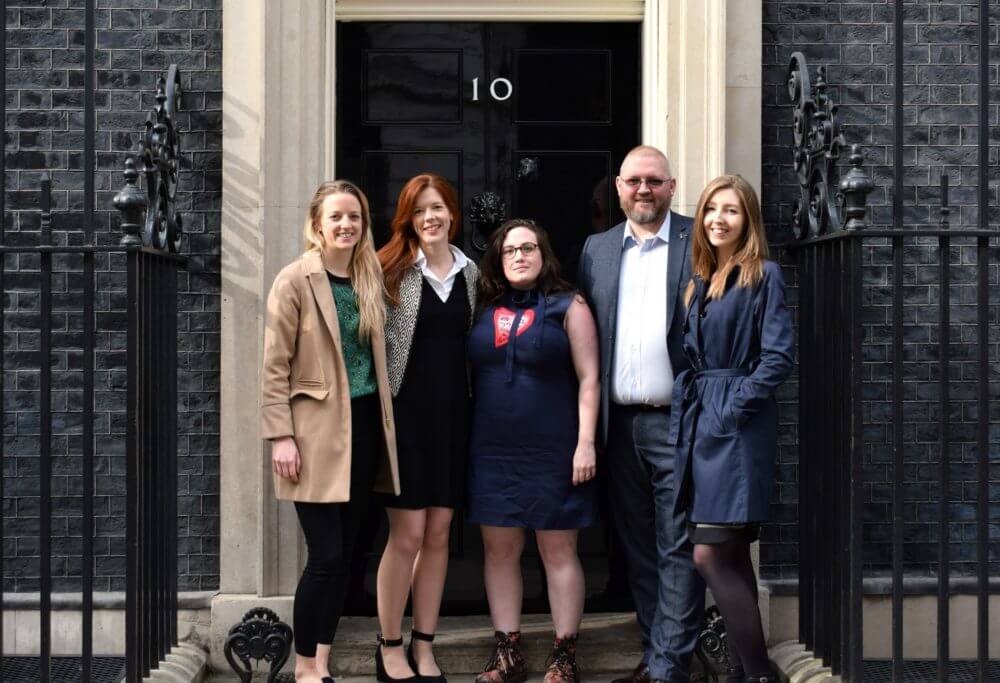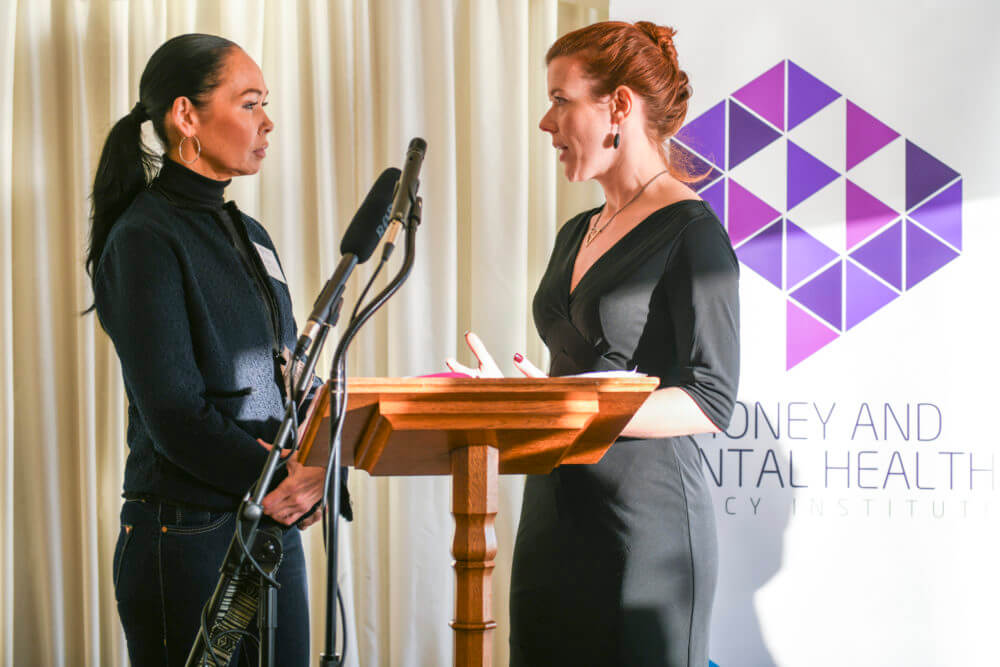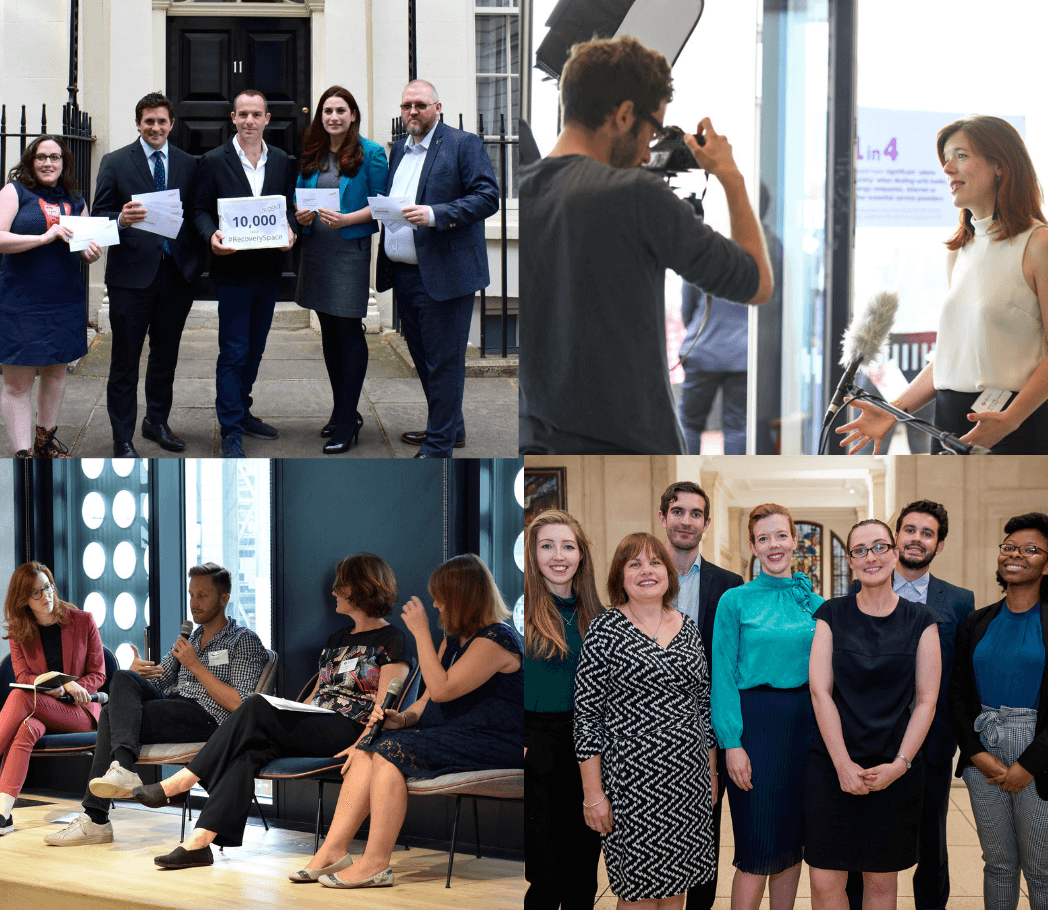
Helen Undy, Chief Executive, Money and Mental Health
Introducing our Annual Review: our highlights from the past year
25 July 2019
Today it’s 38 degrees in central London and we’re eating ice cream in the office. So it’s a slightly strange feeling reflecting back on checking the forecast for snow as we launched our benefits report in March, or dodging the rain at one of our events just before bonfire night. But today we publish our annual review for 2018-19, and it’s a good reminder of everything we’ve been up to over the last 12 months. As we reach the end of my first year as Chief Executive, I’m incredibly proud of our team, who have made headlines and secured policy changes that could, without exaggeration, save lives. Here are some of my highlights:
A lasting legacy
Our Recovery Space campaign persuaded the government to ensure that everyone using NHS mental health crisis services in England has access to the national Breathing Space debt respite scheme. This means that people will have space to recover free from debt collection, escalating fees and charges for the duration of their care in NHS mental health crisis services – whether as an inpatient or in the community. We know that this will protect tens of thousands of people at a time when they are at their most vulnerable – it is a change that will truly save lives.
After winning the campaign we worked closely with the Treasury over many months to help shape the scheme, and we’re really pleased that when it comes into effect next year it should offer all the protections we campaigned for. It was also fantastic to see the team recognised for their efforts, winning Consumer Campaign of the Year at the National Campaign Awards, an award we shared with Lee and Suzanne, members of our Research Community who were at the heart of both the research and the campaign.

Practical tools
We published research this year setting out for the first time the accessibility challenges faced by people with mental health problems when choosing, using and paying for essential services. But we knew that research alone would not be enough to create the change that is needed, so we also worked with over 25 essential services firms to turn this into the first set of mental health accessible standards. We are piloting the standards this summer with Lloyds Bank, and hope to eventually roll them out across all essential services sectors. Translating this large quantity of evidence into a practical but ambitious tool was no small task for the team, but one they took on with their usual commitment and creativity.
One of our longest-standing aims at Money and Mental Health has been to encourage financial firms to give customers more tools to control problem spending. In 2018 we made significant headway – with Barclays, Monzo and Starling all responding to our campaigning by introducing new spending controls for customers for the first time, and other banks announcing an intent to follow.
Groundbreaking research
Robust research is at the heart of everything we do, and the last year has been no exception. In 2018/19 we partnered with the National Centre for Social Research to analyse the latest available Adult Psychiatric Morbidity Survey, providing a unique insight on the proportion of people with mental health problems who are also in problem debt. We published this analysis in a briefing note in March which showed the scale of the links between mental health problems and financial difficulty – revealing that people with mental health problems are three and a half times more likely to be in problem debt, while nearly half of those in financial difficulty also have a mental health problem.
The team has also rapidly gained a reputation for thorough and insightful qualitative research. With two qualified social workers on the team, we work hard to support research participants through conversations which could be difficult, allowing us to gain rare research insight while providing a positive experience for those who take part. I was particularly proud of the way the whole team approached our research on the links between problem debt and suicide, ensuring that participants were supported and working with The Samaritans to make sure that our campaigning work was communicated appropriately.
A lasting legacy
Above all, what really stands out for me over the last year are the inspiring people that we’ve worked with. We’ve had new members of the team join (Brian, our Head of External Affairs and Adenike, our intern) and some move on (Rachel, a Research Officer, and Liam, our former intern), with every one making a unique and significant contribution to our work.
We’ve also expanded our board of trustees; I’m incredibly grateful that we can benefit from the insight and experience of such a talented group. And we’ve continued to work closely with our advisory board, whose generosity with their time is unfailing.
As ever, we are indebted to our Research Community, those who campaign with us and who have shared their personal stories in the media to help our work. We’re always humbled that people trust us with their experiences, and moved by people’s commitment to change things for the better.
One person in particular who deserves recognition is Tracey Rogers. Tracey’s son Jerome tragically took his own life at the age of just 20, after receiving threatening debt collection letters and visits from bailiffs. Tracey got in touch wanting to campaign with us on bailiff reform and to improve debt collection letters to help prevent other families going through similar heartbreak.

She worked with us to help launch our campaign to ‘Stop the Debt Threat’ letters – where firms are essentially mandated by legislation to use intimidating language in the letters they send to people in debt, which can leave people feeling helpless. We also worked together with the Taking Control coalition of charities to push for reform of the bailiff industry. We are very grateful for Tracey’s support, and hopeful that both campaigns will see success in the coming year.
